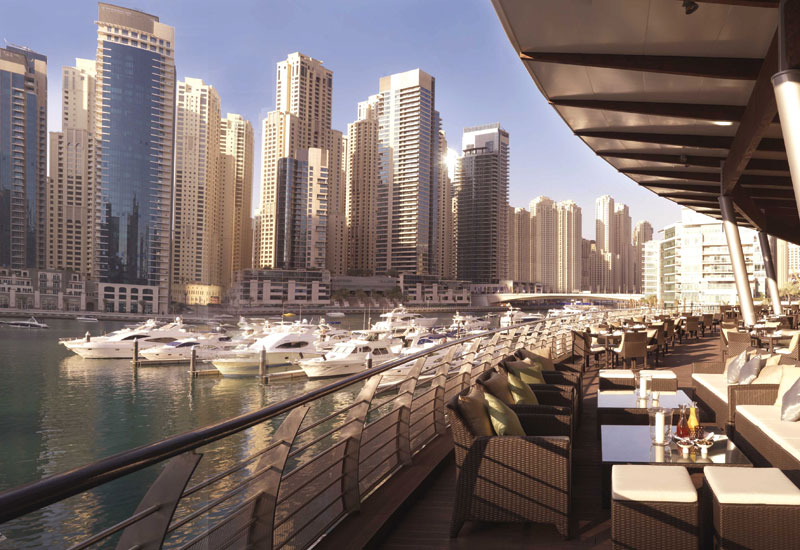Ritz-Carlton’s Pani expanded: “The difference between eating a farmed chicken, fed with poultry feed, compared to a chicken which has been left to run free in the wild is absolutely different in taste, constancy and texture.
“It’s the same for fish; being raised in a big tank and fed powdered food versus living wild in the sea has a big impact on the texture and flavour of the fish.”
According to Okku’s Gardiner, the main issue is bigger than simple taste: “It’s the parasites that exist in some colonies of farmed fish, especially salmon, as well as the effects of these farms on local estuaries and fish populations,” he said.
Zuma’s Clague agreed: “Many farmed prawn ponds are so full of chemicals that they cannot be used again after a few years because of over-pollution.
“Obviously I wouldn’t touch those, but as with anything you get what you pay for, and quality seafood will always be on the expensive side.”
But Okku’s Gardiner said he remained confident Middle East chefs could find an answer to sourcing quality sustainable supplies.
“There is a hybrid solution, which exists in other parts of the world but not here yet, where there are wild farms and fish are reared in sustainable yet natural habitats,” he explained.
“We’ve been trying to source these products for a few months but to no avail so far; stocks are limited and the local market place very small, hence the reason suppliers are not keen to explore this yet.”

Advertisement
But according to EWS—WWF’s Alzahlawi, the seafood market is changing worldwide. “We are witnessing a rise in the demand for certified, sustainable, eco-friendly products, such as those certified by the Marine Stewardship Council,” she explained.
“The seafood market here will no doubt follow the same trend, as more consumers become aware of the impact of overfishing on species and on the environment, and as suppliers and buyers become aware of the uncertainty associated with relying on overfished species that are facing the threat of depletion.”
As Royal Culimer’s Tollenaar commented, the market will eventually have no choice but to adapt: “When these fish no longer exist, no other option is left.”
EWS—WWF’s advice to outlets:
“Variety is the spice of life! Our experience has shown that chefs enjoy the challenge of cooking with new varieties of local fish, and we believe there is an increasingly eco-conscious clientele out there that will get ‘hooked’ on the idea of sustainable fish dishes.
“Any restaurant stands to gain from adding sustainable alternatives to their menus and showcasing their role as a responsible member of the community.
“Our campaign is always on the look out for chefs and restaurants and caterers, and we encourage all to get on board and help safeguard fish resources and promote sustainable living.” For more information, visit: www.choosewisely.ae










 Search our database of more than 2,700 industry companies
Search our database of more than 2,700 industry companies









